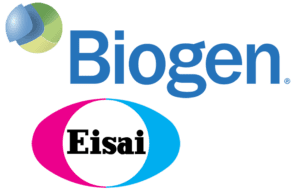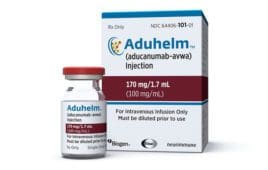 Biogen (NSDQ:BIIB) and Eisai Co., Ltd. (Tokyo, Japan) have announced that the European Medicines Agency (EMA) has given its marketing authorization application for Aduhelm (aducanumab) a “negative trend vote.”
Biogen (NSDQ:BIIB) and Eisai Co., Ltd. (Tokyo, Japan) have announced that the European Medicines Agency (EMA) has given its marketing authorization application for Aduhelm (aducanumab) a “negative trend vote.”
The Committee for Medicinal Products for Human Use (CHMP) with the EMA will likely adopt a formal opinion on the application during meetings scheduled for December 13-16. Aducanumab is unlikely to win approval in the European Union unless CHMP reverses its opinion.
“While we are disappointed with the trend vote, we strongly believe in the strength of our data and that aducanumab has the potential to make a positive and meaningful difference for people and families affected by Alzheimer’s disease,” said Dr. Priya Singhal, head of global safety & regulatory sciences and interim head of R&D at Biogen, in a press release.
In the U.S., aducanumab has seen several setbacks in recent months.
In August, the Department of Veterans Affairs (VA) decided not to include aducanumab in its drug formulary. The VA concluded the drug had unclear efficacy and a significant risk of adverse events.
At that time, the VA added Aduhelm to its non-promotable list, also preventing sales representatives from pitching the drug to the VA.
Also in August, HHS OIG announced that it would review FDA’s approval of Biogen’s aducanumab.
The Cleveland Clinic and Mount Sinai have also chosen not to use aducanumab, while Duke Health and some Blue Cross Blue Shield affiliates reached similar conclusions.
FDA could potentially approve other Alzheimer’s drugs, including Eli Lilly (NYSE:LLY), which is in the process of completing its submission for the Alzheimer’s drug candidate donanemab. In addition, Biogen and Eisai are also working on finalizing the application for another Alzheimer’s monoclonal antibody known as lecanemab.
Filed Under: Neurological Disease





Tell Us What You Think!
You must be logged in to post a comment.